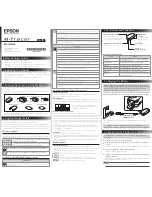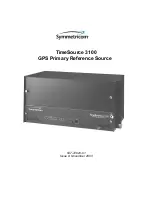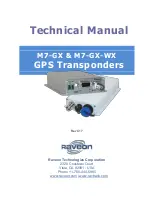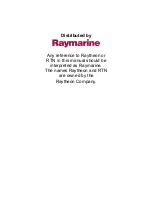
90B is interfaced with a source of heading in a suitable format then a
heading up presentation may also be selected. When the North up dis-
play is selected, viewing the NAV 5 page is like looking at a navigation
chart with North at the top. When the desired track up display is selected,
viewing the NAV 5 page is like looking at a chart that is turned so that your
course line is always pointing up. When the actual track up display is
selected, viewing the NAV 5 page is like looking at a chart that is turned
so that the direction the aircraft is tracking over the ground is pointing up.
In a no wind condition, actual track is identical to the aircraft’s heading.
CAUTION: When using the actual track up format it is typical for
there to be a slight delay from the time a heading change is made
until the correct map orientation is displayed. Be careful when using
either the desired track up display or the actual track up display to
not think that a heading up display is being used. The desired track
up display orientation is most useful when the aircraft’s heading is
approximately the same as the desired track.
In sections 12.0 and 13.0 you will learn to use flight plan operation where
the NAV 5 page really becomes useful. When navigating using flight plan
operation, the active flight plan (FPL 0) waypoints are displayed using the
number associated with the waypoint as it appears on the FPL 0 page.
Thus, the position of the third waypoint in FPL 0 is indicated by a
3
on the
NAV 5 page. Lines connect the flight plan waypoints. An arrow points to
the active waypoint and shows the current flight plan leg.
When operating Direct To a waypoint which is not in the active flight plan,
the Direct To waypoint is indicated on the NAV 5 page by an
*
.
To select the desired NAV 5 orientation press the appropriate
C
(left
C
if NAV 5 page is on left side and right
C
if NAV 5 is on the right). The
cursor will be over the map range scale. Turn the appropriate outer knob
one step counterclockwise to position the cursor over the map orientation
field. Rotate the appropriate inner knob to display
N
??
for North up,
DTK
??
for desired track up,
TK
??
for actual track up, or
HDG
??
for heading up.
The heading up selection is not presented as a choice if heading is not
provided to the KLN 90B. If the cursor is moved to the map range scale
using the outer knob or if the cursor is turned off with the
C
button, then
the
DTK
??
,
TK
??
, or
HDG
??
annunciation is replaced with the actual value.
If a heading input is available to the KLN 90B then heading up is usually
the best map orientation to select. Otherwise, track up display is usually
preferred for use in flight. However, the track up display is only usable
when the aircraft is moving 2 knots or more.
18
















































